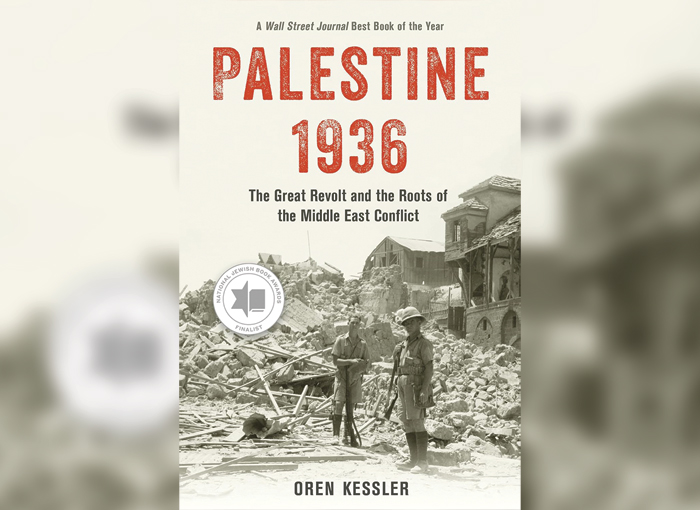Frank Ponder put in a long, fruitful day at the Feb. 13 Super Sunday annual fundraising campaign, helping gather the phone-driven dollars that became part of more than $4.6 million pledged that day for The Jewish Federation of Greater Los Angeles.
Last year, the Federation raised about $4.5 million at Super Sunday 2004, about $800,000 more than 2003’s Super Sunday success. The money will fund agencies such as Jewish Family Service and Jewish Vocational Service, as these two critical-needs agencies join other non-profits in bracing for state and federal cutbacks.
“My goal is just to see if I can make about 100 calls,” said Ponder, 62, describing what turned out to be an easily achieved objective in the large phone bank room at The Federation’s headquarters. “I’ll take a dollar, anything. The hardest part is the noise in the room, but it also provides the energy.”
A Beverly Hills household’s polite brush-off was a request to call at year’s end, but minutes earlier, a Westside doctor and his wife pledged another $1,000, as they did a year ago.
Ponder’s Super Sunday was like that: a little donor gold struck here, an answering machine encounter there. But throughout five hours he maintained his drive to plow through the stack of salmon and yellow sheets containing donor data. Reaching a criminal defense lawyer known for her Court TV analysis during the O.J. Simpson trial brought a $500 pledge.
“People give every conceivable reason not to give,” said Ponder, prior to calling a reliable donor, a retiree who lives in a swank area of Wilshire Boulevard.
“Can we raise that to $1,500?” Ponder asked.
With his pencil marking a form-of-payment box, Ponder clicked off that under-a-minute call and said, “You just took $1,500 out of someone’s pocket, and they want to get off the phone as fast as possible.”
Ponder has spent two decades participating in Super Sundays. Great Southern California weather and answering machines are his enemies. His allies are an old-pro demeanor and the phone bank room’s camaraderie.
L.A. Federation staffers this year decided against Super Sunday T-shirts and instead donated several thousand dollars of planned T-shirt production money to Asian tsunami relief efforts.
Celebrities and politicians visited the main Super Sunday phone room, with prominent names also popping by the event’s Valley Alliance phone room in West Hills. The smaller South Bay Council phone bank volunteers worked in Torrance.
The Los Angeles mayoral candidates each made a cameo appearance at Wilshire Boulevard headquarters, along with other politicians. Los Angeles City Councilman Eric Garcetti’s phone pitch perseverance specifically impressed Ponder, whose seat was across from where the politicians each took a stab at phone pitching.
“Voicemail, voicemail, voicemail,” Garcetti exclaimed after another fruitless call, with Ponder nodding approvingly at his efforts.
“He’s been here longer than any other politico,” said Ponder, a retired retailer, who looked over at the young councilman and said, “Your father used to be a customer of mine.”
“Oh really?” said Garcetti, the son of former Los Angeles County District Attorney Gil Garcetti and a grandson of Federation pioneer Harry Roth.
“I used to run Bel Air Camera,” said Ponder, as Garcetti’s phone luck turned and he began getting real voices instead of answering machines.
The councilman’s personalized donor pitch included the phrase, “You probably know my grandfather, Harry Roth.”
By early evening on Super Sunday, a doctor took over Ponder’s spot, and other phones were taken over by members of the Federation’s Young Leadership and Women’s Campaign divisions.
“I’ve heard every make and model of answering machine,” said Dr. Jeffrey Hirsch, a Beverly Hills internist and the husband of Sinai Temple’s Rabbi Sherre Hirsch. He admitted to some culture shock due to growing up in a much smaller Jewish community in Baton Rouge, La.
“In L.A., a $3,000 giver just gets a phone call on Super Sunday,” he said. “A $3,000 giver in Baton Rouge is like, ‘God, we need that person.'”
Seated next to Hirsch was Diana Fiedotin, a fellow Jewish Southerner and Brown University alumnus who now handles West Coast development for The Federation-supported American Jewish Joint Distribution Committee. The college pals recognized the donor card of a 40ish doctor.
“He was at my birthday party,” Fiedotin said.
Beverly Hills real estate financier Eric Erenstoft kept his headset filled with call after call, his scribbled list of $1,000-$1,500 pledges becoming a testament to how he used his salesman’s energies as a closer to The Federation’s benefit.
“I’m closing!” Erenstoft said, finishing another call.






















 More news and opinions than at a Shabbat dinner, right in your inbox.
More news and opinions than at a Shabbat dinner, right in your inbox.